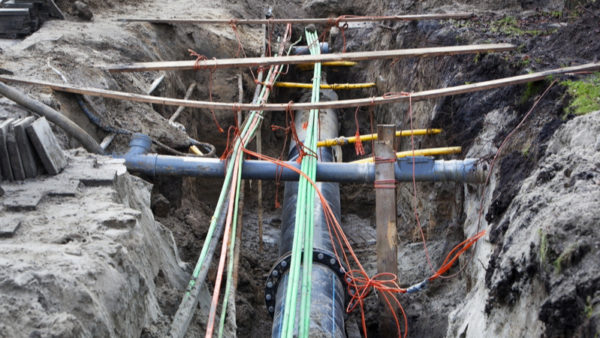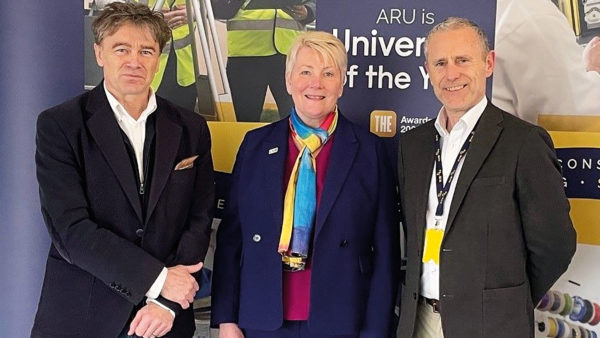
Dave Stitt FCIOB explains why the construction superman is a sign of the industry’s weakness of the command-and-control management culture.
As an impressionable, 17-year-old trainee site engineer I worked under a general foreman called Harry, who was a force of nature. He lived in a caravan on site, and was on the job from seven in the morning until nine at night. He lived for getting the job done, and there was only one way and it was his way.
He’d sit me down at the end of each day at six to plan the next day’s crawler crane movements, concrete batcher plant loads, labour allocations, and everything else, while I sat and watched through blue clouds of his cigarette smoke. Every now and then he’d turn and say, “You’re doing great, Dave!”
At eight I’d get the bus home and he’d write it all up, make photocopies and hand them out to everyone as soon as they arrived on site the next morning.
Harry was the classic construction ‘hero’ and for a long time I believed it was people like him who actually got the job over the line: the single-minded, unstoppable, Herculean, 14-hour-day, six-days-a-week, no holiday, no family life heroes that push the project through against all the odds.
Ten years later it was me as site agent being a hard taskmaster, living in a caravan, barking orders left and right and trying single-handedly to carry the job.
Hero versus enabler
Fortunately, an alternative role model came along soon after Harry stamped his influence on me. Richard was a project manager with a very different approach to Harry’s. He was calm, polite, patient and took the time to speak to people about what they were doing, always listening carefully.
Richard had a calming influence, even on Harry. When Richard was in charge, stress would drain out of a project and the different parties would start pulling together more effectively.
“The best way to end construction heroism is to instil a coaching management culture. What that means is that managers deliberately incorporate simple, basic coaching techniques into their management styles to foster trust, engagement and enthusiasm in their teams.”
I respected both men, though, and for the next 20 years they were like opposing archetypes in my head – hero versus enabler – with Harry winning out more often than not as I hacked my way along in this tough, adversarial industry.
Things changed when I began participating in, then leading, big culture-change programmes first at Birse, then at Wates and Costain. Our eyes were opened to management styles drawn from outside construction’s unique culture, styles proven to foster genuine teamwork and collaboration.
Richard won out then. He had what I call now a coaching style of management. Instead of hoarding accountability as Harry had done, and forcing his will on the team, ever ready to go to war at the slightest sign of disobedience, Richard engaged people, made them feel safe and valued, sought their views on what success looked like, and enabled them to own their own accountabilities for the good of the common goal.
Richard got things done through people; Harry did so in spite of them.
Hero culture has to go
Now I see the construction hero as a sign of the weakness of our industry’s command-and-control management culture. There are three main reasons for this.
The first is that the construction hero perpetuates a management culture in which the hero is necessary in the first place. No doubt Harry perceived that unless he hoarded accountability, barked orders and fought anyone who opposed him, the job would never get done correctly. I did, too, and remember complaining, “Why am I the only one doing the thinking around here?”
What hadn’t occurred to me was that, because of my behaviour, no one else was allowed to think, or lead, or contribute insights and ideas. Genuine teamwork and collaboration was in effect forbidden. Such an atmosphere fosters stress, conflict, silos and disengagement, which leads to waste, defects and disputes, thus necessitating the construction hero.
The second is that it’s unsustainable for the construction heroes. They burn out, leading to a loss of cognitive ability and poor mental health (as architect Nathan Oliver pointed out when I asked my network for feedback on the issue).
The third is that it’s unsustainable for construction companies because it fosters a culture of stress and conflict, which creates more risk and drives people away, pushing companies into an escalating arms race for scarce talent. If we’re ever to attract and retain a younger and more diverse workforce, hero culture has to go. Young people do not thrive in a “hostile environment”, as the planner Anne Okafor noted.
Bring on a coaching management culture
The best way to end construction heroism is to instil a coaching management culture. What that means is that managers deliberately incorporate simple, basic coaching techniques into their management styles to foster trust, engagement and enthusiasm in their teams.
Where command-and-control assumes that I the manager know best about everything, coaching recognises that I don’t, and calls on the talents and insights latent in the people around me.
A team run by command-and-control is rigid and limited by what I as manager know and can conceive, whereas a coached team is smarter, nimbler and more capable because everybody’s talent, knowledge and experience are pooled and harnessed.
If you were a client, which sort of team would you want working for you?
Dave Stitt FCIOB is an executive team coach for the construction industry. His course, ‘Coach for Results’, is now running at the CIOB Academy and his book of the same title is out in September. https://www.ciobacademy.org/course/coach-for-results/
Comments
Comments are closed.











I would agree that what is referred to above as a coached team is the way forward, and a similar way I attempted to use myself
You have to be careful that it does not develop into a meeting culture, always at meetings discussing what needs to be done rather than doing it.
People need to be responsible, it makes the job worthwhile, make use of peoples knowledge and experience but someone has to be responsible for getting it done and done correctly first time.
Difficult?, sometimes
‘Harry’ every time for me, the only thing that matters is getting the job done on time and on budget. If you can’t stand the heat of the kitchen – get out. Harry provided rigid rules and left nobody in any doubt as to their role; can you imagine in a combat zone asking for every soldiers opinions and holding a vote – a sure way to get dead very quickly. Construction has strong similarities with the military, you have an objective, you have a plan/ programme and a schedule to achieve your objective.
Very interesting. Ive been seeing this rubbish for years.
The “heroes” usually come from working for top tier Construction contractors who still maintain their (hidden) bully culture
Fantastic article, most honest piece on the outdated management practices in construction. The main point here is how the hero culture of yesterday is not sustainable in today’s world. This generation is the result of years of human rights, equality and working standards protests. The brave people of that generation wanted a better working environment and work life balance for their children for generations to come.